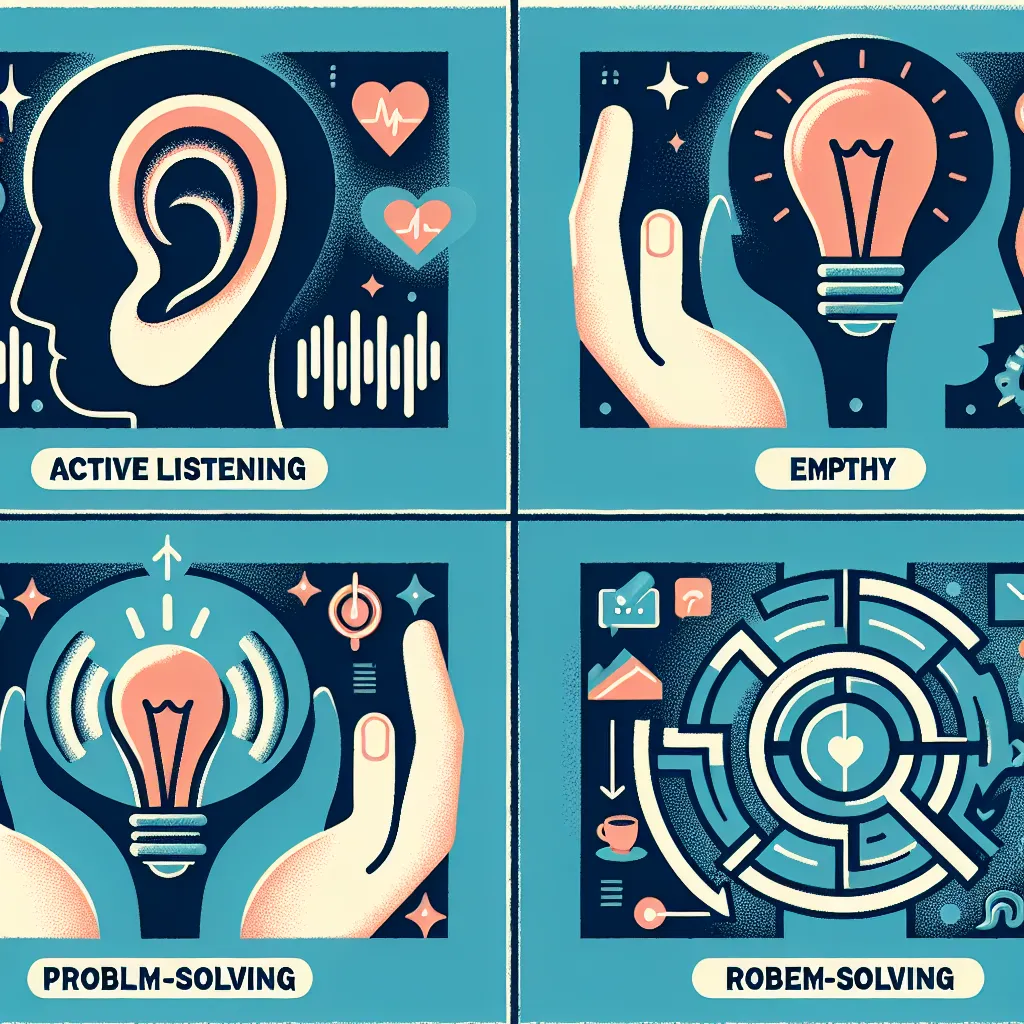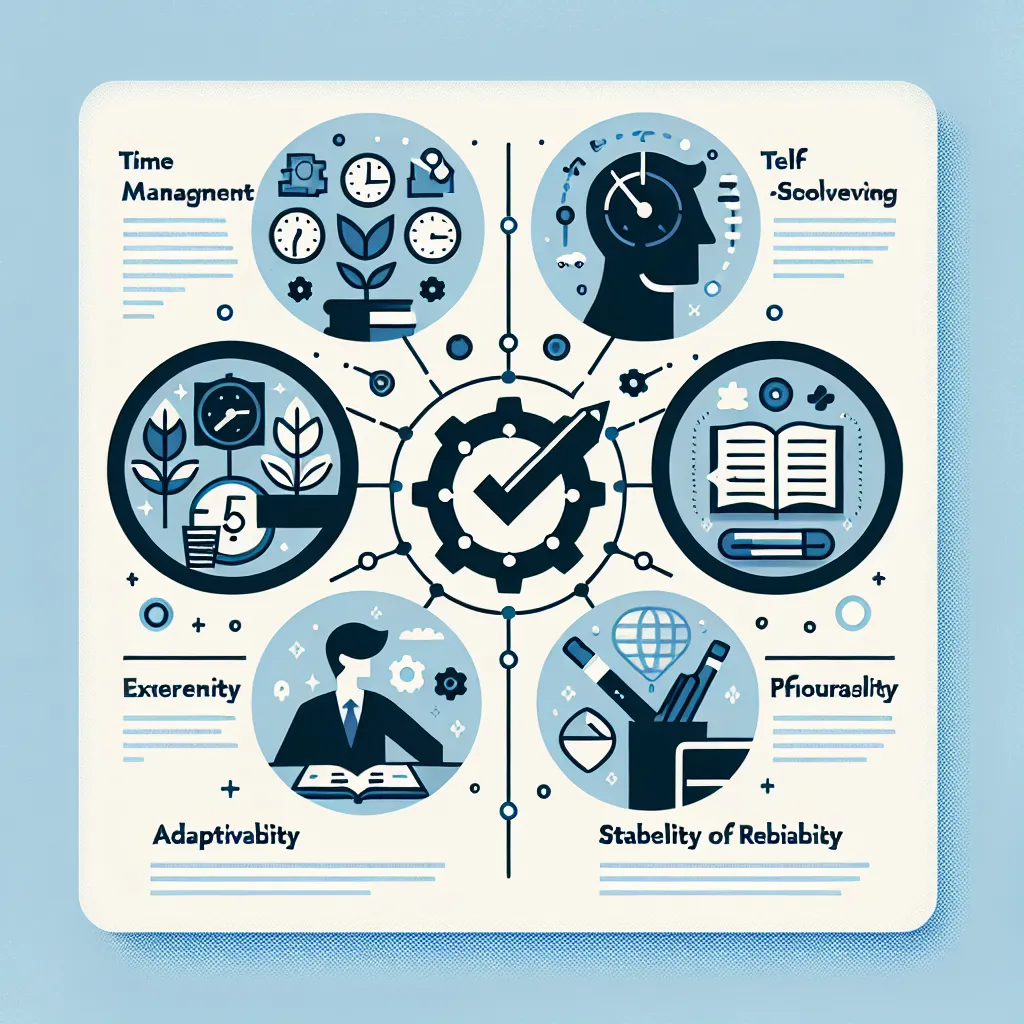In today’s competitive job market, effectively communicating your customer service experience can set you apart from other candidates. Whether you’re applying for a customer-facing role or any position that requires strong interpersonal skills, being able to articulate your customer service background is crucial. This guide will help you navigate How To Talk About Your Experience In Customer Service during an interview, providing you with strategies to showcase your skills and impress potential employers.
Understanding the Importance of Customer Service Experience
Customer service experience is highly valued across industries because it demonstrates your ability to interact with people, solve problems, and represent a company positively. When interviewers ask about your customer service background, they’re looking to assess:
- Your communication skills
- Your ability to handle difficult situations
- Your problem-solving capabilities
- Your empathy and patience
- Your understanding of customer needs
How Interviewers Evaluate Customer Service Skills
Interviewers often use specific criteria to evaluate your customer service experience:
- Scenario-based questions: They may present hypothetical situations to see how you would respond.
- Behavioral questions: These focus on past experiences to predict future performance.
- Role-playing exercises: Some interviews might include simulated customer interactions.
- Metrics and achievements: They’ll be interested in quantifiable results from your previous roles.
 Customer Service Interview Preparation
Customer Service Interview Preparation
Showcasing Your Customer Service Experience
To effectively talk about your customer service experience, follow these strategies:
1. Prepare Specific Examples
Before the interview, reflect on your past experiences and prepare concrete examples that demonstrate your skills. Use the STAR method (Situation, Task, Action, Result) to structure your responses:
- Situation: Describe the context of the customer service scenario.
- Task: Explain what your responsibility was in that situation.
- Action: Detail the steps you took to address the issue.
- Result: Share the positive outcome of your actions.
Example:
“In my previous role at XYZ Company, I encountered a customer who was frustrated about a delayed shipment (Situation). My task was to resolve the issue and ensure customer satisfaction (Task). I listened attentively to the customer’s concerns, apologized for the inconvenience, and immediately contacted our logistics department to expedite the shipment. I also offered a discount on their next purchase as a goodwill gesture (Action). As a result, the customer not only remained with our company but also became a loyal advocate, referring several new clients to us (Result).”
2. Highlight Transferable Skills
Even if you’re applying for a role that’s not directly in customer service, emphasize how your customer service skills are transferable:
- Communication
- Active listening
- Conflict resolution
- Patience
- Adaptability
- Time management
Example:
“My experience in customer service has honed my ability to communicate clearly and effectively under pressure. This skill is directly applicable to the project management role I’m applying for, where clear communication with stakeholders is crucial.”
3. Quantify Your Achievements
Whenever possible, use numbers to illustrate your successes:
- Customer satisfaction ratings
- Number of customers served
- Increase in customer retention rates
- Reduction in complaint resolution time
Example:
“Through implementing a new customer feedback system, I was able to improve our department’s customer satisfaction score from 75% to 92% within six months.”
4. Demonstrate Continuous Learning
Show that you’re committed to improving your customer service skills:
- Mention any relevant training or certifications
- Discuss industry trends you’ve been following
- Share how you’ve adapted to new technologies in customer service
Example:
“I recently completed a course on advanced conflict resolution techniques, which has greatly enhanced my ability to handle challenging customer interactions.”
Common Customer Service Interview Questions and Sample Answers
Here are some frequently asked questions about customer service experience, along with sample answers:
-
Q: Can you describe a time when you had to deal with a particularly difficult customer?
A: “I once had a customer who was extremely upset about a product malfunction. I remained calm, listened actively to their concerns, and assured them that I would personally oversee the resolution of their issue. I arranged for an expedited replacement and followed up to ensure they were satisfied. The customer appreciated the personal attention and later became one of our most loyal clients.”
-
Q: How do you handle situations where you can’t meet a customer’s demands?
A: “When faced with unrealistic demands, I first ensure I fully understand the customer’s needs. Then, I clearly explain our policies and limitations while focusing on what we can do. I always try to offer alternative solutions or compromises that could satisfy the customer within our capabilities.”
-
Q: How do you stay motivated in a fast-paced customer service environment?
A: “I find motivation in the challenge of turning each interaction into a positive experience. I set personal goals for customer satisfaction and celebrate small wins. Additionally, I make sure to take short breaks to recharge and maintain a positive attitude throughout my shift.”
-
Q: How do you handle customer complaints about company policies you can’t change?
A: “I acknowledge the customer’s frustration and empathize with their situation. I then explain the rationale behind the policy in a way that highlights its benefits to customers. If possible, I explore alternative solutions within the policy framework. My goal is to help the customer understand and feel heard, even if I can’t change the policy itself.”
-
Q: Can you give an example of how you’ve gone above and beyond for a customer?
A: “A customer once mentioned in passing that they needed our product urgently for a family event. Although we had already closed for the day, I stayed late to personally package the item and arranged for special delivery. The customer was thrilled, and this extra effort resulted in a glowing review and repeat business.”
Common Mistakes to Avoid When Discussing Customer Service Experience
When talking about your customer service experience, be careful to avoid these common pitfalls:
- Being too vague: Always provide specific examples rather than general statements.
- Focusing only on responsibilities: Highlight achievements and results, not just duties.
- Neglecting soft skills: Don’t forget to emphasize empathy, patience, and adaptability.
- Speaking negatively about past customers: Always maintain a positive, professional tone.
- Underestimating the importance of customer service: Show that you understand its value to the organization.
Follow-up Questions and Suggested Responses
Interviewers may ask follow-up questions to delve deeper into your customer service experience. Here are some examples with suggested responses:
-
Q: How do you stay updated on product knowledge to better serve customers?
A: “I make it a point to thoroughly read all product updates and participate in training sessions. I also use our products myself whenever possible to gain firsthand experience.”
-
Q: How do you maintain a positive attitude during stressful periods?
A: “I practice mindfulness techniques and remind myself of past successes. I also find that brief moments of peer support with colleagues can be very refreshing.”
-
Q: Can you describe a situation where you turned a negative customer experience into a positive one?
A: “Once, a customer was frustrated about a delayed response to their inquiry. I apologized sincerely, expedited their request, and provided them with a direct contact for future issues. They appreciated the personal touch and became a repeat customer.”
-
Q: How do you handle situations where you need to escalate a customer issue?
A: “I first ensure I’ve exhausted all options within my authority. When escalating, I provide a comprehensive summary to my supervisor and keep the customer informed throughout the process.”
-
Q: What strategies do you use to build rapport with customers quickly?
A: “I use active listening, find common ground when possible, and always address them by name. I also make sure to match their communication style while remaining professional.”
 Essential Customer Service Skills
Essential Customer Service Skills
Conclusion
Effectively communicating your customer service experience can significantly enhance your chances of success in an interview. By preparing specific examples, highlighting transferable skills, quantifying your achievements, and demonstrating your commitment to continuous improvement, you can showcase your value as a customer-oriented professional. Remember to stay positive, be specific, and always focus on how your experience can benefit the potential employer.
For more interview tips and strategies, check out our related articles on how to discuss your leadership skills in an interview and how to talk about your adaptability in an interview. These resources will help you further refine your interview skills and increase your chances of landing your desired position.




